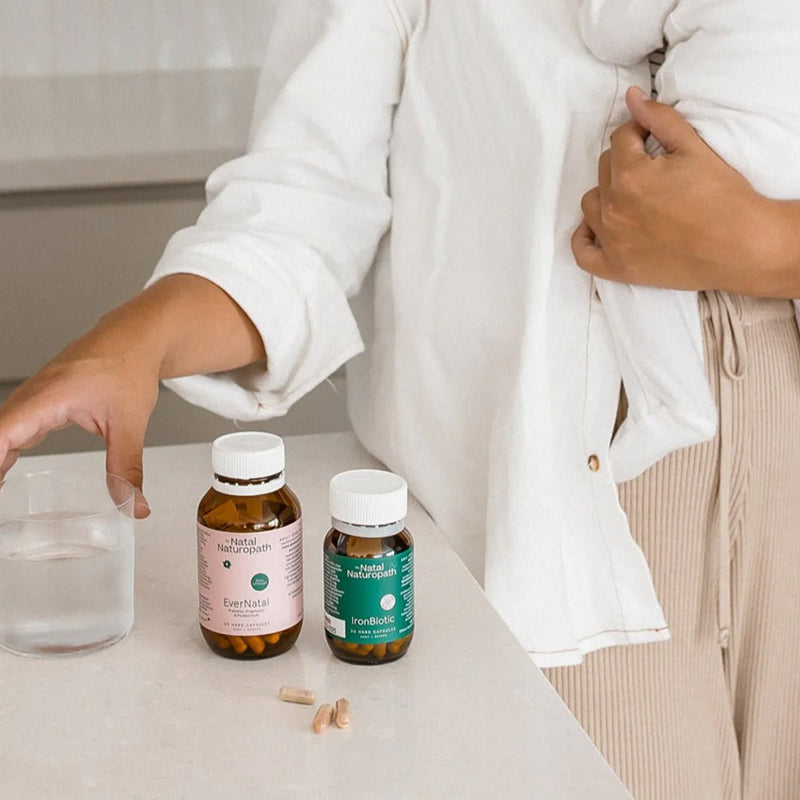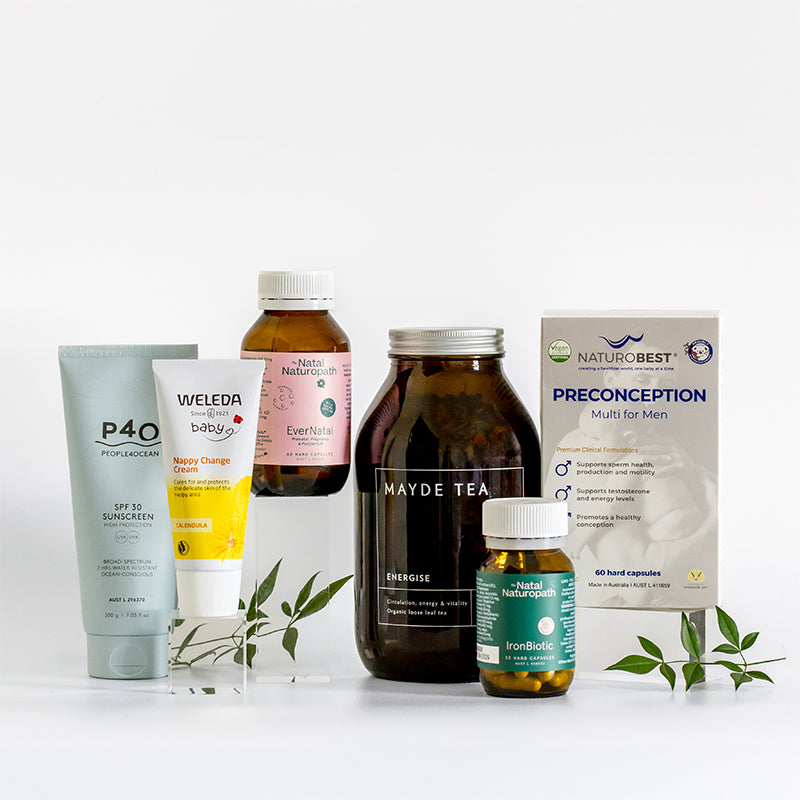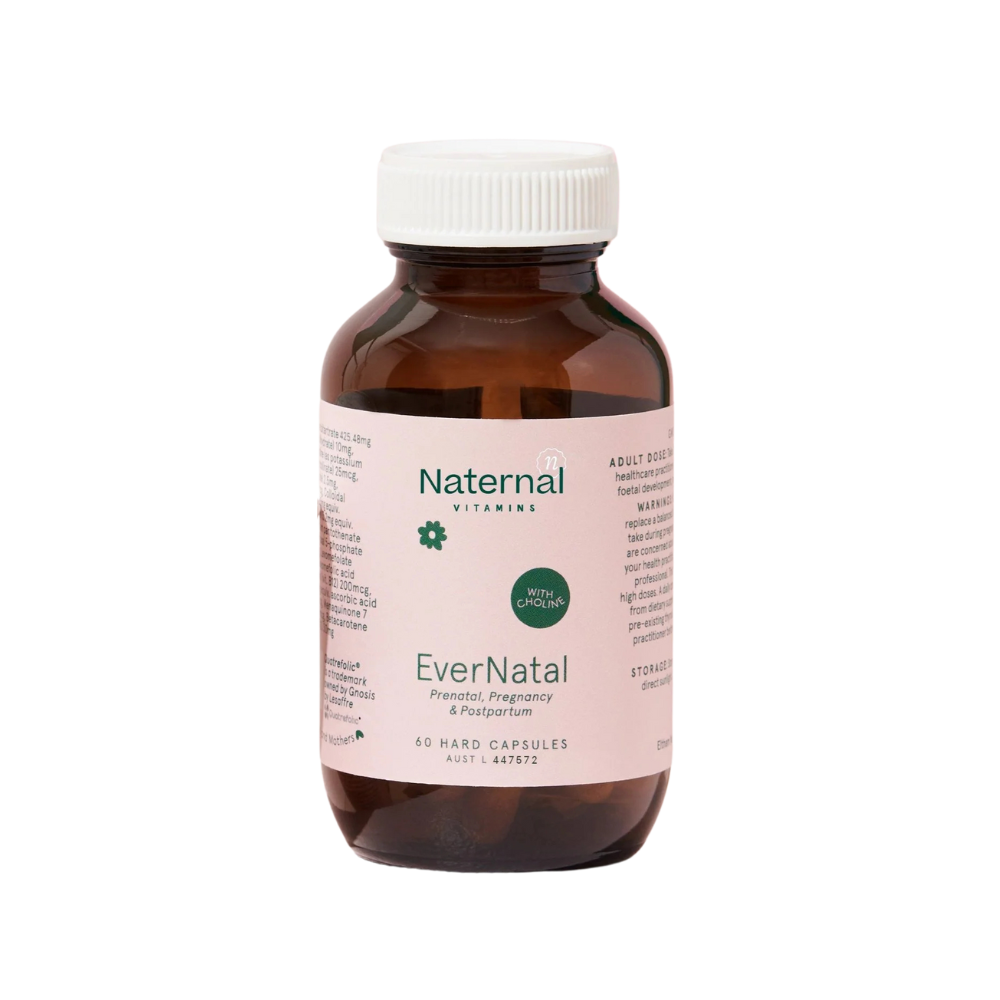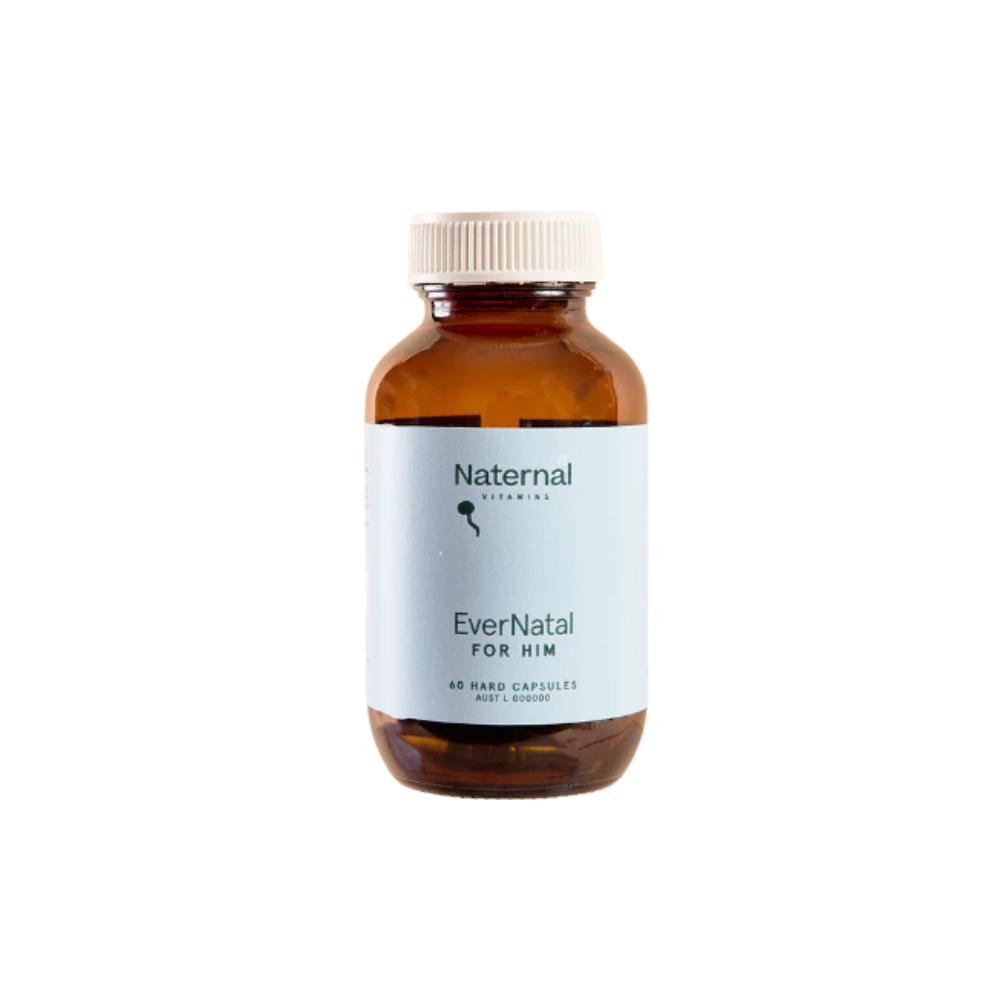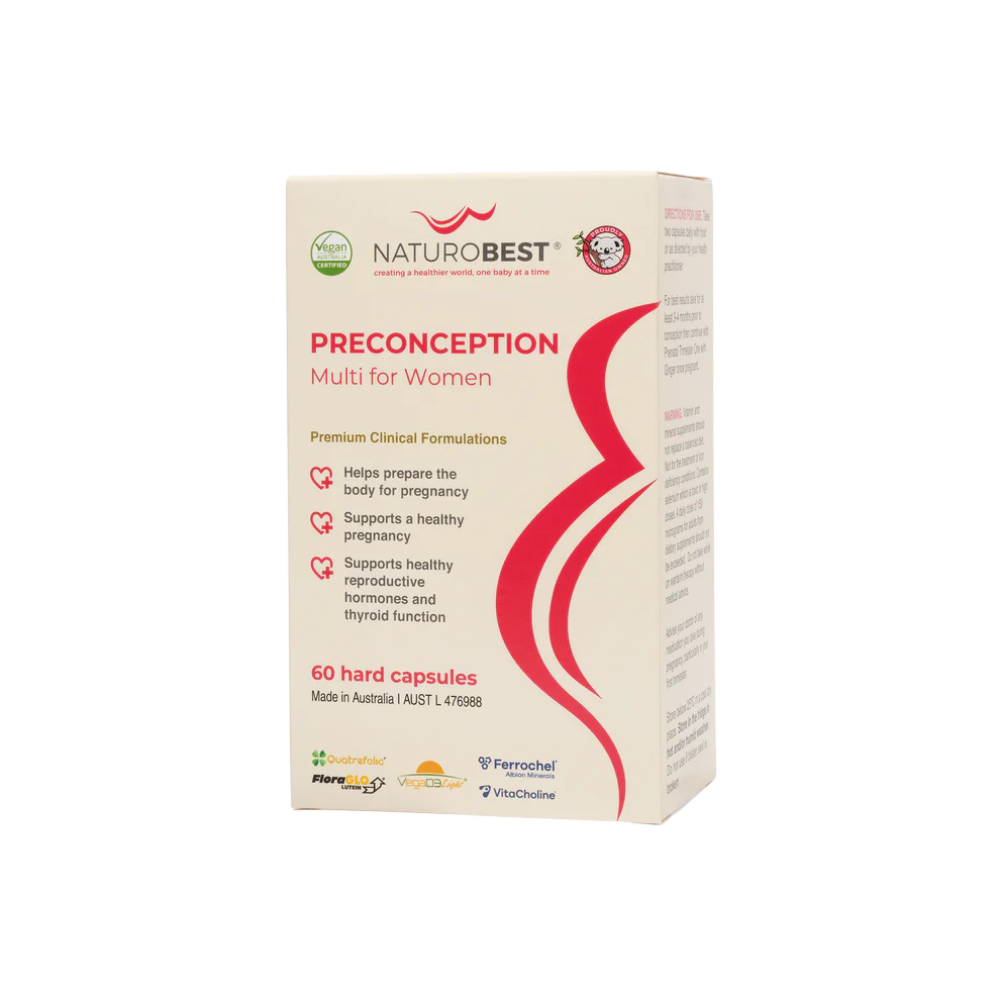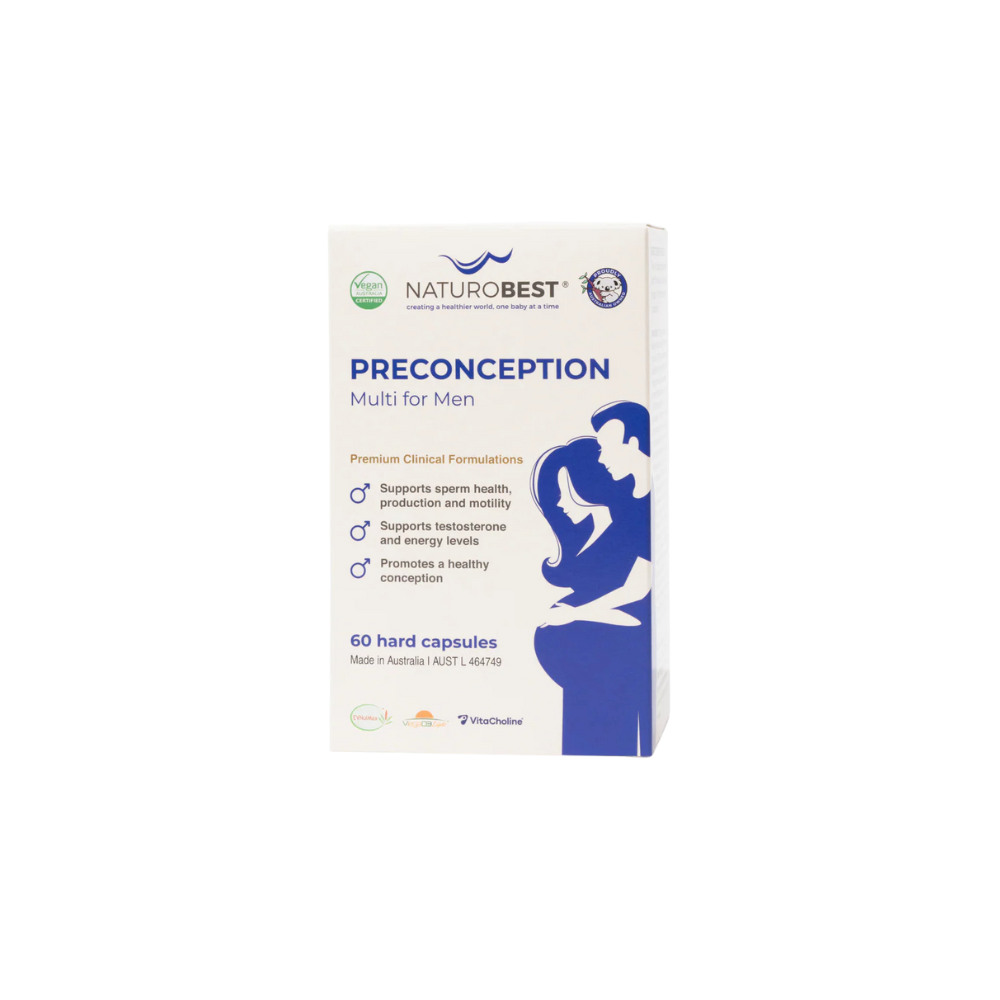When it comes to preparing the body for pregnancy, there’s no such thing as a one-size-fits-all plan. Every woman brings her own unique context to the preconception journey. In a consultation I consider your age, hormonal balance, ovarian function, health history, lifestyle, nutritional habits, stress levels, and of course your partner’s sperm health. All of these layers influence the way I build a preconception care protocol, and it’s why no two “preconception prescriptions” ever look the same.
Egg Quality: More Than Just Age
Egg quality is one of the most crucial aspects of preconception health - but it’s not just about age. Even though you are born with your eggs, your egg quality has everything to do with the maturation process that starts a whopping 6 months before that egg is released at ovulation. (Very different to sperm which is created new each day and lives for only 70 days). If you don’t have 6 months to invest in egg quality, the final 3 months of the maturation process are the most active and are essential to good egg health.
Age:
As women get older, natural changes in mitochondrial function and chromosomal stability can affect eggs. This means that mitochondrial support goes a lot further with an older patient, than a patient in their 20s. Do we still support egg quality in younger patients? Of course - but that support is going to look very different when you are 28 compared to when you are 38. It also will depend heavily on your diet and lifestyle, for example a younger patient who has a history of smoking/vaping and poor intake of vegetables and shift work will likely need the same amount of mitochondrial support as an older patient with a clean diet who sleeps 8 hours every night.
Lifestyle and oxidative stress:
Diets high in processed foods, alcohol, smoking, or chronic exposure to stress increase oxidative damage, directly impacting egg health. Some medications and recreational drugs can also play a role in this oxidative stress. While you are waiting for your appointment, improving your diet and sleep, reducing your stress and cutting out alcohol and smoking will go a very long way to improving your preconception health.
PCOS and insulin resistance:
For women with PCOS or struggling with weight, it is important to know that the way the body processes glucose and insulin has a profound impact on the ovary and egg development. Supporting stable blood sugar is a key part of improving egg quality in these situations.
Ovarian Function: Are Your Ovaries Overworking, Underworking, or Perfectly in Sync?
Another key piece of the preconception puzzle is ovarian function - essentially, how well your ovaries are responding and working to release an egg every month.
PCOS:
Sometimes ovaries are working too hard. We see this is PCOS (often with an associated high AMH*) where the ovaries are producing many follicles, but they often struggle to release them. This is why polycystic ovaries often look like they are “trying really hard” but without successful ovulation. Our focus here will be on clearing the obstacles to ovulation (excess testosterone, a high glucose diet, excess weight, stress and inflammation).
Ovarian insufficiency:
At the other end of the spectrum, ovarian insufficiency occurs when ovaries are slowing down, often seen in women approaching perimenopause. This can be reflected in a low AMH* as well as a rise in FSH and LH as the body calls more loudly for ovulation to occur, but the ovary can’t always respond. When oestrogen starts to fall we know that this process is further along in its journey. These cases need swift and supportive preconception strategies, and a consideration of assisted reproductive technology.
* As a side note, it is important never to use AMH as the only assessment of your fertility. It can tell us how hard your ovaries are working but must be taken in the context of all the other factors outlined in this article. I have seen AMH cause unwarranted stress in many women, as well as giving women a false sense of fertility when used in isolation. Also, AMH should only be tested on day 3 of your cycle.
Functional Hypothalamic Amenorrhea (FHA).
Sometimes the ovaries aren’t the root issue at all. The hypothalamus, which signals the ovaries, can “switch off” under conditions of chronic stress, excessive exercise, low body weight, or restrictive diets. Here, cycles stop not because the ovaries can’t function, but because the signal isn’t reaching them. Restoring balance in nutrition, stress, and energy availability is vital. Herbal and nutritional interventions are very effective in such cases.
It is really important that we don’t look at AMH or ovarian markers in isolation. There is so much context surrounding ovarian function. They are only one piece of the puzzle, but they do help us understand how the ovaries are functioning - whether they’re overworking, underworking, or doing exactly as they should.
Hormonal Balance and the Role of Progesterone
Beyond the eggs and ovaries themselves, hormones create the internal environment for conception to occur.
Progesterone is key:
Progesterone is the most often talked about hormone when it comes to preconception care, and definitely a primary focus in most cases. Progesterone is release after ovulation, and it helps mature the endometrial lining so it can support an embryo. Without enough progesterone, implantation struggles. The biggest impact on progesterone levels is ovarian function and stress.
Stress and the “pregnenolone steal.”
Under stress, the body prioritises its progesterone precursor (building block) hormone “pregnenolone” towards cortisol production rather than progesterone. Over time, this can seriously deplete progesterone levels. Stress is one of the most commonly seen drivers of hormone imbalance for this reason and if you have seen me in clinic for hormone imbalance I likely would have explained this key process to you.
Oestrogen dominance.
If oestrogen outweighs progesterone, the endometrial lining can become thickened or dysfunctional - another barrier to implantation. Oestrogen can also offset your healthy progesterone levels as oestrogen speaks much more loudly in the body as it is a more powerful hormone. Signs of oestrogen dominance include breast tenderness, heavy bleeding and painful menstruation. This is another very common hormone imbalance and is essential to regulate before conception for maximised implantation success.
Implantation and Endometrial Health
So you have been focusing on egg quality, you appear to have happy ovaries and your partner’s sperm looks good… what happens next? We need to look at your endometrial lining, the place where the egg implants and the home of your embryo.
Endometrium as fertile soil.
The uterine lining needs to be rich, nutritious, and receptive, with the right nutrients and blood flow to sustain early pregnancy. There are some key nutrients and herbs that can contribute to an ideal endometrial lining. Focusing here is very important after an ivf stimulation cycle and also after miscarriage or any reproductive procedure.
Inflammation and immune health.
Systemic inflammation or immune dysregulation can prevent the embryo from embedding successfully. Preconception work often includes calming the immune system and reducing hidden sources of inflammation.
Looking Beyond the Woman: Sperm Quality
Male factors are just as important in preconception, which you may have read about in previous articles. Sperm quality, motility, morphology and DNA integrity all play into the success of conception and a healthy pregnancy. Lifestyle, diet, toxins, and stress affect men too - and their preconception care is just as important. Generally things that influence egg health also influence sperm health.
Why Preconception Care Must Be Personalised
When you put all these factors together - egg health, ovarian function, hormone balance, endometrial receptivity, inflammation, immune function, and sperm quality - it’s clear why preconception care can never be a generic supplement plan. Every person arrives with their own unique constellation of factors, and every plan must be tailored individually.
This is why, when I see someone in clinic for preconception support, I’m not reaching for the same bottle of supplements each time. I assess your diet, your lifestyle, your partner’s health, your hormone balance, your immune function, any inflammation present, your ovarian function, your health history and your age. From there I create a plan that’s right for you.
Ready to take the next step?
If you’re trying to conceive, or simply want more clarity around what’s going on in your body, I’d love to support you. You can book a one-on-one or couples consultation with me via Nourishing Apothecary.
Let’s take the guesswork out of your health and get you feeling empowered again.
– Danielle, Naturopath at Nourishing Apothecary

